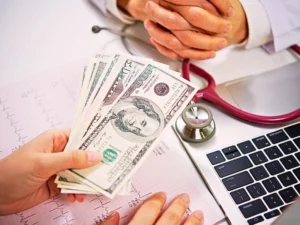How Long After Chapter 13 Bankruptcy Can You Buy a House?
If you are contemplating filing for bankruptcy, you may want to know – how long after Chapter 13 Bankruptcy can you buy a house? More than a million Americans file for bankruptcy each year to help take care of debts they may not be able to pay back. Although not all debts can be taken care of through bankruptcy, filing can often help an overwhelmed debtor ease some financial burden and allow them to get back on track. Unfortunately, bankruptcy affects your credit score and when you might be able to qualify for a loan to buy a house.
Understanding
Common Types of Bankruptcy that May Impact Your House Buying Plans
Chapter 7 and Chapter 13 are the most common types of bankruptcy, and they have different long-term consequences for filers. Although a Chapter 7 bankruptcy may seem more appealing as it erases more debt and takes less time to complete, it looks worse on a credit score. Filing under Chapter 7 rather than Chapter 13 can make it harder to qualify for a loan in the future.
What Is Chapter 13 Bankruptcy?
Unlike Chapter 7, Chapter 13 does not simply wipe away debts. Rather, it helps to reduce what you owe while allowing you to retain certain assets, such as your home. You must submit a reorganization plan to the court that outlines a schedule of payments you will make to creditors. Reorganization under Chapter 13 takes longer than a Chapter 7 filing. However, it allows you to keep your assets during the bankruptcy process and makes it easier to get approved for loans. Unlike Chapter 7, which can take less than a year to complete, Chapter 13 can take three to five years to fully discharge the debt.
- Calling to have the filer make payments.
- Sending collection notices or letters.
- Filing a court case over unpaid debts.
- Active wage or non-wage garnishments.
In a
A
What Happens After Chapter 13 Bankruptcy?
When a bankruptcy has either a discharge or a dismissal ordered by the Judge, it is considered over. With a discharge, the debts you owe that can be discharged are wiped off your record. Creditors cannot continue to try to collect them, as they have received a settlement of the debt through bankruptcy proceedings. If the court dismissed your bankruptcy for any reason, and you are not able to
Whether the bankruptcy has been dismissed or discharged, you can begin to try to improve your credit score once the process is over. First, you should begin to pay down any remaining debt to signal to your creditors that you are serious about changing your habits. Pay all bills on time, including any credit cards or
You may also want to prepare a letter explaining why you had to file for bankruptcy and the changes you have made to your life to improve it. If your bankruptcy was dismissed due to extenuating circumstances, you might also prepare a letter for potential lenders that states what the circumstance was. This could include:
- The loss of employment made bankruptcy payments impossible.
- Continued unemployment even though you are trying to get a new job.
- The death of a spouse, especially if they were a co-filer and were also making payments.
- An injury or disability that resulted in unexpected medical bills or affected your ability to work.
Once you have started the process of repairing your credit, you can start to plan to buy a home. It is also helpful to get pre-approved with the loan institution prior to searching for a home so that you have an established budget while searching. A pre-approval letter should also make it easier to get a bid approved, as the bank has already signed off on what they will loan you.
Make sure that the loan institution has signed a letter of pre-approval and not prequalification. When you are prequalified rather than pre-approved, the bank does not do an asset check. Due to the lack of an assets check, a prequalification does not hold as much weight as a pre-approval letter.
It is also important to answer any questions that the lender might have. You should be open and honest with the lender. If you have had to
How Long After Chapter 13 Bankruptcy Can You Buy a House?
Before applying for a loan, you will need to wait for the bankruptcy to be over, either through a discharge or a dismissal. Some loan institutions will allow a filer to apply for loans after they have been in Chapter 13 bankruptcy for a year and have made 12 months of payments. However, there are many more steps the filer must make before obtaining a loan approval. The filer must get permission from the court to take on additional debt and prove that he or she can pay the loan while maintaining bankruptcy payments.
If the filer decides trying to make a mortgage payment while also making payments to the trustee would be too difficult, then he or she should wait for the completion of the bankruptcy, waiting for completion is the best. If the court dismisses a bankruptcy, the filer may have to wait as long as four years after the completion of his or her bankruptcy to qualify for a conventional loan. However, the filer will only have to wait two years if the court discharged the Chapter 13 bankruptcy.
Some Governmental loans may allow for the filer to apply and qualify after only three years. This time may be even shorter for veterans, as they can apply for certain loans only offered to veterans. There are no types of loans that an applicant must avoid after filing bankruptcy, as long as they follow the guidelines for when they are able to apply. However, qualifying for some loans might be easier than others.
A Chapter 13 will stay on your credit score reports for seven years. Chapter 7 will stay on for ten years. However, even though a bankruptcy might still be on your credit score, it does not mean you cannot qualify for a loan. If one institution turns you down, another may still approve your loan.





